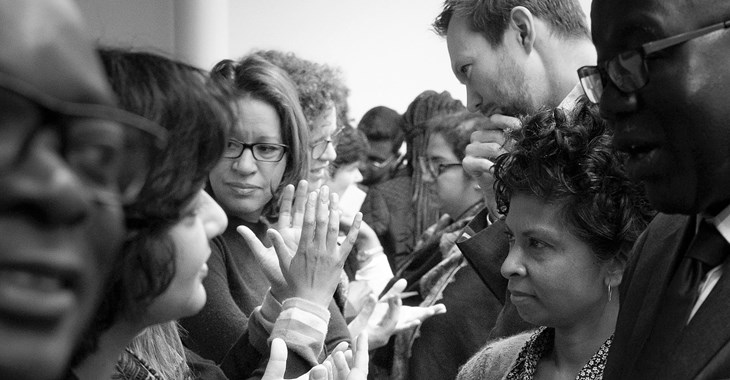Many of the major challenges facing humanity today, and in the future, will cross borders and disciplinary boundaries. Addressing these challenges will require cutting edge research and innovation by people with the right global networks and interdisciplinary mindsets, especially if the challenges are to be tackled in a sustainable way that leaves no communities behind.
The Frontiers programmes aim to address this need by building a pipeline of researchers, practitioners and innovators who are working to tackle global development challenges.
They are four strands to the programme:
- Frontiers interdisciplinary symposia
- Seed funding awarded to collaborations from symposia
- Follow on funding to scale up seed funding projects
- Becoming a Frontiers Champion with a networking grant
Frontiers symposia to build innovative collaborations
Frontiers symposia bring together the best early- and mid-career researchers, practitioners and innovators to discuss international development themes and address the Sustainable Development Goals. The events allow participants to build networks that can be transformative - not only to tackling the global goals, but also to the career and opportunities of the participant.
Funding to build lasting partnerships
Since launching in 2016, the Frontiers Programme has awarded grants that have financed more than 145 projects in 32 countries working on projects such as emergency shelter for refugees, climate change resilience and inspiring the younger generation with the circular economy and many more.
There are three types of funding opportunities available to symposia participants after the event. Full details on how to apply and eligibility can be found below in the Funding section.
The impact of the amazing work and projects implemented by funding recipients is highlighted through the case studies on our awardees page.
Latest Frontiers News and Events

New resources based on the experience of the Frontiers community
We asked the Frontiers community what they wish they had known whey started out on their international, interdisciplinary projects that tackle complex global challenges, and turned their lessons into a series of new resources to share the knowledge that this global community has accumulated.

Blog: The Water-Energy-Food-Environment Nexus: Harnessing Key Resources for Climate Resilience and Equity
In this blog piece Professor Iqbal Mujtaba FREng, co-chair of the Nexus in action symposium, argues that an integrated approach to resource management will be a vital part of building equitable and climate resilient communities.
